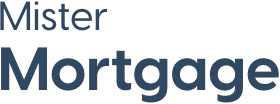
If you consider a buy-to-let property in the Netherlands, then you will notice that it works a bit differently compared to a residential mortgage. For example, some Dutch banks will reject your inquiry from the get-go. Here, you can find six tips on buy-to-let mortgages.
Determine what your goal is with buy-to-let
An essential question you have to ask yourself before you invest in the Dutch real estate market is why you want to buy a property for rent, and not invest in shares, funds, or keep your investment on a savings account? It is essential to understand why you are choosing to invest in the Dutch real estate market versus other options. We advise you to do your research about different financial products, their returns, and risks.
We also recommend you to ask yourself: Are you going to invest because you have money left over? Do you see it as your retirement plan? Or do you want to save money for your kids? Each goal requires different research.
Get to know the market
-
Read carefully about the legal rights and obligations that apply to landlords and tenants.
-
Build a network of trusted professionals: real estate agents, appraisers, notaries, and financial specialists. They can familiarize you with the process of buying homes/apartments, such as investment, values, price development, advantages and disadvantages, and opportunities and risks.
-
Conduct your research to get a better idea of the housing market in the Netherlands before investing in the real estate market. For example, students have different housing needs than a couple. How do we know what is essential?
Study the consequences for your tax and legal position
Investing in real estate has implications for your taxes. Tax implications for rental income are in either box 1 or box 3. The difference is how much tax you have to pay. Other questions to ask yourself are:
-
What happens if the property is vacant for a longer time than expected?
-
How is my rental income taxed?
-
What costs can I deduct from the tax?
-
Am I going to buy the property alone or together?
-
Will I buy it privately or through a legal entity (still to be established)?
-
What does it mean that I am married?
-
What happens to my property if I pass away?
Determine your budget
Consider what part of your assets you want to use to invest in the real estate market in the Netherlands. There is no magical percentage or rule of thumb. We believe in diversifying your investments, so investing parts of your assets in shares or bonds makes sense.
Diversification means that you’re mitigating the risk of the market fluctuates. If you’re planning on buying the first property, you should look into dividing your assets over several apartments. When buying a house or apartment in the Netherlands, it is essential to make sure you know how much you should reserve for the costs of purchasing, renovating, and maintenance.
Property management and maintenance
Every property in the Netherlands needs repairs at some point. Some (minor) repairs are for the account of the tenant, but maintenance and replacement costs are for you as the lessor. Think of a broken boiler or paint that is peeling off. A reservation on the rental income is advisable. There’s no rule of thumb in how much to reserve. How much to reserve depends on:
1. Are you all thumbs or an experienced builder?
2. Do you have time to repair any damage?
3. What is the current state of the property?
4. Does the homeowners association (VvE) take care of repairs?
5. Does the technical inspection/report give you confidence?
Get professional advice on contracts and agreements
Always have contracts and agreements prepared and checked by a professional. Consequently, the tip applies to both the purchase contract when purchasing a buy-to-let property and the agreements with your tenants. A real estate agent, real estate lawyer, or notary can explain the possibilities and challenges to you. In other words, be informed when it comes to defects, leasehold, tenants’ protection, soil pollution, and the financial and legal position of the VvE.
Schedule a complimentary introductory call with our mortgage specialists. We specialize in mortgages for expats and are dedicated to navigating you through the home-buying process.
-
Access to a trusted network.
-
Highly competitive rates and flexible terms.
-
Guidance through the entire mortgage process.
-
English translations of bank documents are shared.

- 100% Independent Advice




